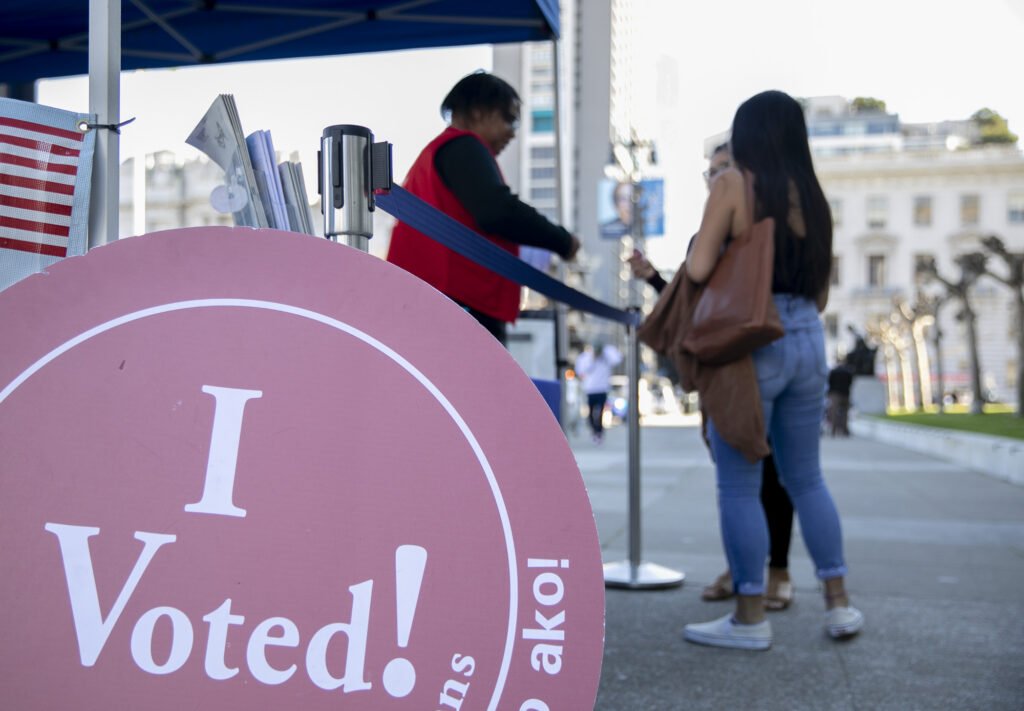Ballot Boxes and the Battle for Democracy in California
On a brisk autumn afternoon in San Francisco, the hum of conversation fills the air outside City Hall, where a crowd of voters forms to drop off their mail-in ballots. The moment is charged with anticipation, as voices blend into a single chorus of civic engagement. Yet, just a few hundred miles away, in GOP strongholds across California, the political landscape is shifting dramatically. The California Republican Party’s controversial decision to implement unofficial ballot drop boxes has set off a firestorm of legal challenges and ethical debates, raising profound questions about election integrity in the Golden State.
The Rise of Unofficial Ballot Drop Boxes
In the aftermath of a devastating electoral loss in the 2018 midterms, California Republicans recalibrated their strategy. Confronted with a demographic shift that had pushed their influence into the shadows, the party chose to embrace “ballot harvesting”—a practice made legal by a 2016 state law that allows voters to authorize others to submit their ballots on their behalf. As they prepared for the 2020 election, Republican strategists turned this law into a double-edged sword, establishing makeshift drop boxes at churches and community centers targeting their voter base. However, many of these ballot collection points were emblazoned with labels that claimed to designate them as “Official Ballot Dropbox.”
“The Democrats wrote the rules; we’re just playing by them,” said Hector Barajas, a spokesperson for the California GOP, defiant in the face of criticism. “Our operation is about ensuring that our voters are heard.” But legal experts caution that navigating this gray area may hold dire consequences.
Legal Ramifications and Ethical Questions
Under California law, only county election officials have the authority to establish official ballot drop boxes. The situation intensified when Secretary of State Alex Padilla and Attorney General Xavier Becerra issued a cease-and-desist letter demanding that Republican officials dismantle their makeshift drop boxes. They argued that labeling these boxes as “official” could amount to impersonating an election officer, a serious felony.
- Only counties can create official drop boxes.
- Ballots delivered by third parties must carry signatures from both the voter and the courier.
- False labeling of drop boxes could be subject to criminal prosecution.
“This is not just an electoral issue; it’s a matter of accountability,” Padilla proclaimed. “If ballots go missing or are manipulated, who do voters hold responsible?”
The Expert Perspective
Brandon Stracener, a research fellow at the California Constitution Center, underscored the legal hazards in the current setup. “The chaos introduced by these unofficial boxes undermines the principle of election integrity,” he stated. Citing a recent study, he added, “When voters feel unsure about the legitimacy of their voting process, you see increased apathy and declining turnout—two outcomes that are the antithesis of democracy.”
Moreover, election law expert Rick Hasen from UCLA noted that these practices could open doors to widespread vulnerabilities. “Unofficial drop boxes are a Pandora’s box of issues—there’s no oversight, and the chain of custody is compromised,” he said. “That’s a recipe for disaster.”
The Impact of Party Strategy
With the GOP’s newfound strategy to “fight fire with fire,” the political climate in California has become increasingly polarized. Surveys indicate that confidence in the electoral process is waning nationwide; thus, the implications of Republican ballot harvesting may resonate beyond the West Coast.
Dramatic shifts in voter engagement strategies have revealed how political parties adapt to their environments. Democrats, who initially embraced the practice of ballot collection, now find themselves caught in a back-and-forth skirmish as Republicans take cues from a playbook they previously dismissed.
“Sometimes you don’t realize the consequences of legislation until it’s too late,” remarked Lorena Gonzalez, a Democratic Assemblymember who championed the original ballot harvesting law. “This was meant to empower voters, not create chaos.” She acknowledges that the very law intended to increase voter participation now faces scrutiny for potentially eroding public trust.
The Economic Dimensions of Ballot Collection
A recent survey conducted by the Pew Research Center reveals that nearly 50% of voters in California are unfamiliar with the rules surrounding ballot harvesting, highlighting a disconnect that both parties must confront. Experts are divided on whether this will ultimately benefit or harm voter turnout. Some argue that GOP strategies aim to galvanize their base, while others assert that misleading practices could alienate moderate voters.
As organizations scramble to fill the void left by the confusion surrounding official drop boxes, the economic implications also come to light. “Money and manpower will determine who wins this battle,” said political analyst Maria Rios, “which raises troubling questions about how money influences our electoral processes.”
The Path Forward
As clashes escalate between state officials and the Republican Party, the question remains: how can California safeguard its electoral process without stifling innovative practices that engage disenfranchised voters? Legal experts like Stracener advocate for stronger regulations and clearer definitions of what constitutes ballot harvesting, urging lawmakers to caution against creating an environment rife with exploitation.
“If we don’t address these challenges head-on, voting may become more about strategy than about citizens’ voices,” he cautioned, demonstrating the crucial balance between political maneuvering and the integrity of democratic participation.
Inside the hallowed halls of City Hall, amidst the clamor of ballots being cast, the solution lies not just in legal battles but in a collective commitment to restoring faith in a system designed to represent the people. The echoes of history remind us that democracy is fragile, easily undermined yet resilient when nurtured. All eyes remain fixed on California—a potential harbinger of electoral trends that could reverberate across the nation.





